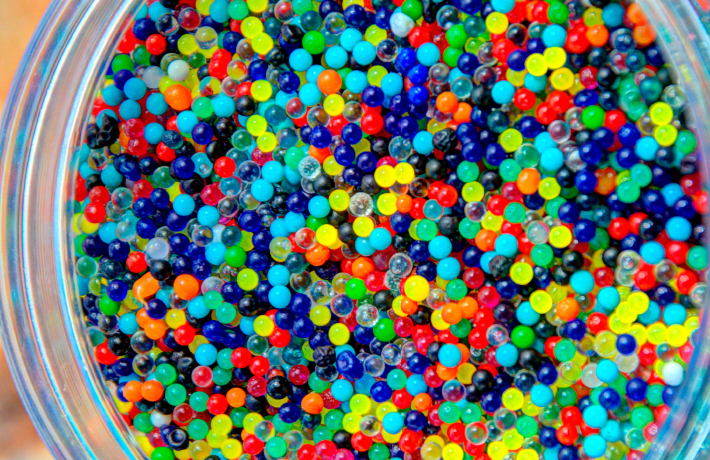
Parents are filing water bead lawsuits against the products’ manufacturers after their children were seriously injured by ingesting the allegedly dangerous toys. The U.S. Consumer Product Safety Commission estimates that water beads were responsible for 7,800 emergency room visits between 2016 and 2022 and at least one death.
Ingesting water beads can pose a serious risk, particularly in children and young adults. These small, superabsorbent polymer beads are about the size, shape and color of candy ice cream sprinkles but expand up to 200 times their original size when exposed to water.
Since water beads are indigestible, can absorb body fluids and expand, they pose a severe risk if swallowed. Water bead lawsuit claims say ingestion of the toys led to airway blockages causing lung collapse, intestinal blockage and even death.
While no federal multidistrict litigation yet exists, the large number of ER visits suggests the potential for hundreds or thousands of water bead lawsuits. If the number of lawsuits continues to grow, they may be combined in a single federal MDL in the future.
Class Action Targets One Water Bead Manufacturer
Apart from the growing number of personal injury lawsuits, a California law firm has filed a class action water bead lawsuit on behalf of parents.
The class action accuses the makers of Orbeez water beads of false advertising and fraudulent conduct for not warning parents adequately about the risks the toys pose to children. The lawsuit claims that water bead manufacturer Orbeez made “material omissions” in the packaging and used marketing that deceived and misled consumers.
The product liability lawsuit seeks significant changes in marketing, a halt in sales and compensation for unaware customers. The lawsuit claims Orbeez prioritized profits over safety by not providing proper warnings about the risk of intestinal obstruction and X-ray detection.
Water Bead Ingestion Is Difficult To Treat
It’s difficult to treat someone who ingests water beads. The toys may not show up clearly in X-rays and removing them can require surgery or other medical procedures.
A 2024 peer-reviewed medical case study published in Cureus highlights the potential dangers of water beads. One 19-year-old experienced nausea, vomiting and abdominal pain after ingesting 50 to 70 Orbeez water beads.
Doctors used an endoscope, snaking down the teen’s throat, through his stomach and into the upper portion of his small intestine to remove them.
The authors said the study underscores the importance of timely diagnosis and management to prevent complications like constipation, intestinal obstruction, perforation and peritonitis.
“If a water bead is ingested, it expands and can pose ingestion, choking and intestinal obstruction hazards inside a child’s body, resulting in severe discomfort, vomiting, dehydration and a risk of death to a child,” reads a CPSC Recall Notice.
In 2017, thirteen-month-old Kipley Haugen swallowed water beads and required surgery to extract them. Years later, Kipley’s pediatrician diagnosed her with toxic encephalopathy, a form of brain injury, attributing it to likely exposure to harmful chemicals present in the beads.
Ashley Haugen, Kipley’s mother and a consumer advocate, is now actively working to ban water beads, emphasizing that the same water beads that caused devastation to her family are still available for sale, posing a silent threat in households.
Feds Promise Action on Water Bead Dangers
Efforts to ban water beads marketed to children are gaining momentum, with petitions and legislation urging stricter regulations to ensure consumer safety.
Several retailers — including Amazon, Walmart and Target — have already discontinued the sale of these products, and a proposed rule to address the issue is expected to be introduced in September 2024.
In September 2023, Buffalo Games recalled 52,000 packages of Chuckle & Roar Ultimate Water Beads Activity Kits.
U.S. Rep. Frank Pallone Jr. introduced legislation in November 2023 to establish a national ban on water beads marketed to children, citing their potential harm and lack of proper labeling.
CPSC commissioner Rich Trumka, Jr. anticipates proposing a rule in September, emphasizing the need for regulatory action to ensure the safety of consumers, especially children. The response from various retailers and lawmakers reflects a growing awareness of the hazards associated with water beads, indicating a potential shift towards stricter regulations in the interest of public safety.